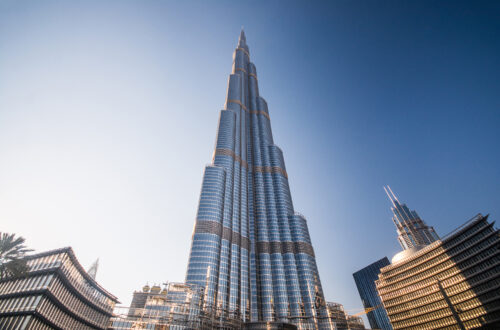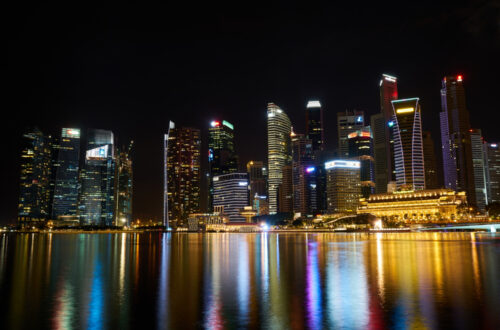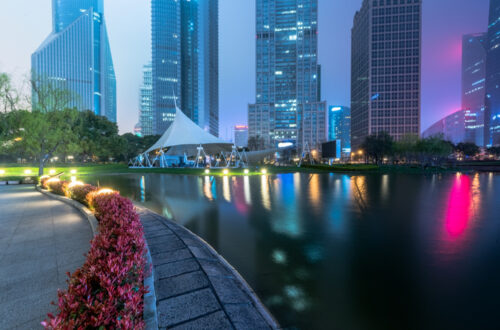
Cost of Living in Dubai: Everything You Need to Know
Introduction
Dubai is a famous city known for its stunning skyscrapers, lively culture, and luxurious lifestyle. It’s a global hotspot that attracts people from all over the world, making it a unique mix of cultures and a major business hub. For many expats, Dubai offers great job opportunities and a high standard of living, but it’s important to understand what it costs to live there.
Knowing the cost of living in Dubai is crucial for anyone thinking about moving to this exciting city. It helps you plan your budget, live comfortably, and avoid any financial surprises. From rent and utility bills to transportation and healthcare, being aware of these expenses allows you to make better financial decisions. Whether you’re planning to move to Dubai or already living there, understanding these costs is key to enjoying your life in this vibrant city.
Housing Costs
When looking for a place to live in Dubai, you have a few choices: apartments, villas, and shared housing. Each option has different costs and features to fit various budgets and preferences.
Apartments: Apartments are popular among many expats. They come in different sizes, from studios to multi-bedroom units. In areas like Downtown Dubai and Dubai Marina, rent is higher due to their prime locations and modern amenities. For example, a one-bedroom apartment in Downtown Dubai might cost around AED 90,000 per year, while a similar apartment in Dubai Marina could be about AED 80,000 per year. In more affordable areas like Al Nahda or Deira, the same apartment might cost around AED 45,000 to AED 55,000 per year.
Villas: Villas offer more space and privacy, making them a good choice for families. These can be found in communities like Jumeirah, Arabian Ranches, and The Springs. Renting a villa in Jumeirah can be quite expensive, averaging around AED 200,000 per year for a three-bedroom villa. In more budget-friendly areas like The Springs, you might find similar villas for about AED 150,000 per year.
Shared Housing: For those looking to save money, shared housing is an option. This usually means renting a room in a shared apartment or villa. The cost of a single room in a shared apartment can range from AED 2,000 to AED 4,000 per month, depending on the location and the facilities provided.
When deciding whether to rent or buy property in Dubai, it’s important to think about the costs and benefits. Renting offers flexibility, especially for expats who might not stay long-term. However, buying property can be a good investment if you plan to stay in Dubai for several years. The costs of buying property include the sale price, which varies widely based on location and property type, and additional fees like registration and maintenance. For example, buying a one-bedroom apartment in a popular area like Dubai Marina might cost around AED 1.5 million, while a similar property in a less central area could be around AED 800,000.
In short, housing costs in Dubai can vary a lot depending on the type of place and the area you choose. Whether you’re renting or buying, it’s important to think about your budget and what you need to find the best option for you.
Utilities and Internet
Living in Dubai means paying for utilities and internet services every month. Here’s what you can generally expect:
Utilities: For a regular apartment, the monthly cost for things like electricity, water, cooling, and gas can range from AED 500 to AED 1,200. These costs depend on the size of your home and how much you use. Cooling is especially important in Dubai’s hot weather and can be a big part of your bill.
Electricity and Water: These services are provided by the Dubai Electricity and Water Authority (DEWA). On average, you might pay around AED 400 to AED 600 per month for a one-bedroom apartment. If you have a bigger place or use a lot more, it could go up to AED 1,200 or more.
Gas: If you use gas for cooking or heating, it’s usually provided by private companies. The monthly cost for gas is about AED 50 to AED 100.
Internet: Having high-speed internet is essential. In Dubai, you can choose from providers like Etisalat and du. A typical internet plan with good speed and unlimited data costs between AED 300 to AED 500 per month, depending on the package and speed you choose.
Mobile Phone Plans: Mobile phone plans are also offered by companies like Etisalat and du. A standard plan with calls, texts, and data usually costs around AED 100 to AED 250 per month. If you need more data or international calling minutes, it can cost more.
In short, utilities and internet are important monthly expenses in Dubai. Knowing these typical costs can help you plan your budget and make sure you have the services you need.
Transportation
Getting around Dubai is simple with plenty of transportation options. Here’s what you can expect to pay for public transport, taxis, and owning a car.
Public Transport: Dubai has a good public transport system that includes the Metro, buses, and trams.
Dubai Metro: The Metro is a fast and easy way to travel. It covers many key areas in the city. A single trip costs between AED 3 to AED 7.50, depending on how far you go. If you use it often, you can get a monthly pass for AED 100 to AED 300.
Buses: Buses are another cheap option, reaching many parts of Dubai. A single bus ride costs about AED 3 to AED 10, depending on the distance. You can also buy a monthly pass that lets you use both buses and the Metro for around AED 300.
Trams: The tram runs in areas like Dubai Marina and Jumeirah Beach Residence. A single ride costs about AED 3 to AED 5. It’s great for short trips and connects well with the Metro.
Taxis: Taxis are everywhere and good for short trips. The starting fare is AED 12, and you pay around AED 2 to AED 3 per kilometer. A typical ride within the city might cost between AED 20 to AED 50.
Car Ownership: Many people in Dubai prefer having their own car. Here are the costs:
Buying a Car: Car prices vary. You can find used cars from AED 20,000, while new cars range from AED 50,000 to AED 200,000 or more, depending on the model.
Fuel: Fuel prices are low compared to many other places. Right now, petrol costs around AED 3 per liter.
Insurance: You must have car insurance, which costs between AED 1,500 to AED 3,000 per year, based on the coverage and car value.
Parking: Parking fees can add up, especially in busy areas. Public parking usually costs AED 2 to AED 4 per hour. Monthly parking passes in residential areas range from AED 200 to AED 600.
In short, Dubai has many ways to get around that fit different budgets and needs. Whether you use public transport, take taxis, or own a car, knowing the costs helps you plan your expenses better.
Food and Groceries
Understanding the costs of food and groceries in Dubai can help you manage your budget better. Here’s a look at the expenses for eating out versus cooking at home and the price differences between local markets and supermarkets.
Eating Out: Dubai has a variety of dining options, from cheap eats to fancy restaurants.
Cheap Eats: A meal at a simple restaurant or fast-food place can cost around AED 20 to AED 40.
Mid-range Restaurants: Eating at a nicer restaurant, where you might have a three-course meal, can cost about AED 150 to AED 300 for two people.
Fancy Restaurants: If you go to a high-end restaurant, expect to pay AED 500 or more for a meal for two.
Cooking at Home: Cooking at home can save you money, especially if you shop smartly.
Here are some average prices for common grocery items:
Milk (1 liter): AED 6
Bread (1 loaf): AED 5
Rice (1 kg): AED 7
Eggs (12): AED 12
Chicken (1 kg): AED 20
Apples (1 kg): AED 10
Tomatoes (1 kg): AED 8
Potatoes (1 kg): AED 6
Local Markets vs. Supermarkets: Where you shop can also affect your grocery bill.
Local Markets: Local markets, like Deira Fish Market or various fruit and vegetable markets, often have fresher produce at lower prices. For example, fruits and vegetables can be 20-30% cheaper than in supermarkets.
Supermarkets: Supermarkets like Carrefour, Spinneys, and Waitrose offer convenience and a wider variety of products, but prices can be higher. They often have imported goods, which can add to the cost.
In short, while eating out in Dubai is convenient and offers variety, cooking at home is usually cheaper. Shopping at local markets can help you save money on fresh produce, while supermarkets provide convenience and a wide selection of items. Knowing these costs can help you make better choices about where and how to spend your money on food.
Education
Education is a big consideration for expat families living in Dubai. Here’s what you need to know about the costs for international schools and nurseries.
International Schools: Many expat families prefer international schools because they offer high-quality education and various curricula, like British, American, or International Baccalaureate (IB). The costs can vary a lot based on the school’s reputation, location, and facilities.
Tuition Fees: Annual tuition fees for international schools can range from AED 30,000 to AED 100,000 or more. For instance, a mid-range international school might charge around AED 50,000 per year, while a top-tier school could charge upwards of AED 80,000 to AED 100,000 per year.
Additional Costs: Besides tuition, there are other costs like registration fees, which can be around AED 500 to AED 5,000, depending on the school. You also need to budget for uniforms, books, and extracurricular activities, which can add another AED 5,000 to AED 10,000 per year.
Nurseries: For younger children, nurseries are an important part of early education. The costs for nurseries also vary based on factors like location and the level of care provided.
Tuition Fees: Monthly fees for nurseries can range from AED 1,500 to AED 4,500. This means you could be paying anywhere from AED 15,000 to AED 45,000 per year, depending on the nursery.
Additional Costs: Some nurseries might charge extra for meals, transportation, and special programs. These additional costs can add up to AED 1,000 to AED 5,000 per year.
In short, education in Dubai can be quite expensive, especially if you choose international schools or high-end nurseries. It’s important to include all the associated costs, like tuition and extras, in your budget. Knowing these costs can help you make the best decisions for your children’s education in Dubai.
Healthcare
Dubai has a top-notch healthcare system with both public and private hospitals and clinics. Here’s what you need to know about healthcare and health insurance in Dubai.
Healthcare System: The healthcare in Dubai is known for being modern and efficient. You can find both public and private hospitals and clinics. While public hospitals offer good care, many expats prefer private hospitals and clinics because they are more convenient and have shorter wait times.
Health Insurance: Health insurance is required for everyone living in Dubai. Employers must provide health insurance for their employees, but it’s important to know what your insurance covers. If your employer doesn’t provide insurance, you’ll need to buy your own.
Costs of Health Insurance: The price of health insurance plans can vary depending on what they cover.
Basic Plans: A basic health insurance plan might cost between AED 5,000 to AED 10,000 per year. These plans cover essential health services but might have limited choices for hospitals and clinics.
Comprehensive Plans: A more comprehensive plan, which offers more coverage and more options for healthcare providers, can cost between AED 10,000 to AED 25,000 per year or more.
Out-of-Pocket Expenses: Even with insurance, you may still have to pay for some medical services out of your own pocket. Here are some average costs:
Doctor’s Visit: Seeing a general doctor can cost between AED 200 to AED 500.
Specialist Consultation: Seeing a specialist can cost between AED 300 to AED 700.
Emergency Room Visit: An ER visit can range from AED 500 to AED 2,000, depending on the treatment you need.
Medications: Prescription medications can vary in cost, but you might spend around AED 100 to AED 500 per month if you need regular medication.
In short, healthcare in Dubai is high-quality, but having health insurance is important to help cover the costs. The price of insurance and out-of-pocket expenses can vary, so it’s essential to know what your insurance covers and plan your budget accordingly. This will help you manage your healthcare needs while living in Dubai.
Leisure and Entertainment
Dubai has lots of fun activities to offer, but it’s good to know how much they cost so you can plan your budget. Here’s a simple breakdown of some popular leisure and entertainment activities.
Cinema Tickets: Going to the movies is a favorite activity for many. A regular cinema ticket in Dubai costs around AED 35 to AED 45. If you want a VIP experience or watch a 3D movie, you might pay between AED 75 to AED 100 per ticket.
Gym Memberships: Staying fit is important, and there are many gyms to choose from. Monthly gym memberships usually cost between AED 200 to AED 600, depending on the gym’s location and facilities. Some fancy gyms with extra perks can cost more.
Dining Out: Dubai has a great food scene with options for every budget. Here’s what you can expect to pay:
Casual Dining: A meal at a simple restaurant can cost between AED 40 to AED 100 per person.
Mid-range Restaurants: Eating at a mid-range restaurant typically costs around AED 150 to AED 300 for two people.
Fine Dining: For a fancy dinner at a high-end restaurant, expect to pay AED 500 or more for two people.
Popular Attractions and Activities: Dubai is famous for its many attractions. Here are some examples:
Burj Khalifa: Visiting the observation deck of the world’s tallest building costs around AED 150 to AED 200 for standard tickets, and up to AED 600 for VIP access.
Desert Safari: A desert safari adventure usually costs between AED 150 to AED 300 per person, depending on the package.
Water Parks: Entry to popular water parks like Aquaventure or Wild Wadi costs around AED 200 to AED 300 per person.
Theme Parks: Tickets to theme parks such as IMG Worlds of Adventure or Dubai Parks and Resorts cost between AED 250 to AED 350 per person.
In short, Dubai has a lot of fun activities to offer, no matter your budget. Whether you’re watching a movie, joining a gym, dining out, or visiting popular attractions, knowing the costs can help you enjoy your time without overspending.
Miscellaneous Expenses
Besides housing, utilities, and food, there are other living expenses to think about when living in Dubai. Here’s a look at some of these costs.
Clothing: Shopping for clothes in Dubai can range widely in cost, depending on where you shop.
High Street Brands: Clothes from stores like Zara or H&M usually cost around AED 100 to AED 300 per item.
Designer Brands: For designer brands, prices can be much higher, from AED 500 to AED 3,000 or more per item.
Personal Care: Taking care of yourself also adds to your monthly expenses.
Haircuts: A haircut can cost between AED 50 to AED 150 for men and AED 150 to AED 300 for women.
Personal Care Products: Items like shampoo, toothpaste, and skincare products can cost between AED 20 to AED 100 each, depending on the brand.
Household Items: Essentials for your home also contribute to your living costs.
Cleaning Supplies: Basic cleaning supplies like detergent, floor cleaner, and dish soap can cost around AED 100 to AED 200 per month.
Furniture and Appliances: If you need to furnish your home, prices can vary a lot. A basic sofa might cost around AED 1,000, while a refrigerator can cost between AED 1,500 to AED 3,000.
Additional Costs for Expats: There are some extra costs that are particularly relevant for expats.
Visa Fees: Expats need to renew their visas periodically. The cost of visa renewal can range from AED 1,000 to AED 7,000, depending on the type of visa and how long it’s for.
Maid Services: Many expats in Dubai hire maids for household help. The cost for part-time maid services can range from AED 30 to AED 50 per hour. Hiring a full-time live-in maid typically costs between AED 2,000 to AED 3,500 per month, including accommodation and food.
In short, there are various extra expenses to consider when living in Dubai, from clothing and personal care to household items and additional costs for expats. Knowing these expenses can help you plan your budget better and make sure you have a comfortable living experience in Dubai.
Cost of Living Comparison
Comparing the cost of living in Dubai to other major cities around the world can help you understand if it’s expensive or affordable to live here.
Dubai vs. New York: New York is known for being very expensive. Dubai can be cheaper in some ways but still costly in others.
Rent: Rent in Dubai is usually cheaper than in New York. For example, a one-bedroom apartment in downtown Dubai might cost around AED 90,000 per year, while a similar apartment in New York could cost about AED 180,000 per year.
Groceries: Grocery prices in Dubai are similar to those in New York, but imported goods can be more expensive in Dubai.
Dining Out: Eating out in Dubai can be cheaper than in New York, especially at mid-range restaurants.
Dubai vs. London: London is another pricey city.
Rent: Rent in central London is higher than in Dubai. A one-bedroom apartment in central London might cost around AED 120,000 to AED 150,000 per year, while in Dubai, it would be around AED 90,000.
Groceries: Grocery costs in both cities are similar, with some items being cheaper in Dubai.
Dining Out: Dining out in Dubai is generally cheaper compared to London.
Dubai vs. Singapore: Singapore is often compared to Dubai because both are major global hubs.
Rent: Rent prices in both cities are similar, with a one-bedroom apartment in central Singapore costing around AED 100,000 to AED 120,000 per year, similar to central Dubai.
Groceries: Groceries are a bit cheaper in Dubai compared to Singapore.
Dining Out: Dining out costs are quite similar, with both cities offering a wide range of options at different prices.
Is Dubai Expensive or Affordable?
Expensive: Dubai can be considered expensive, especially for rent and imported goods. Luxury living, dining at fancy restaurants, and entertainment can add up quickly.
Affordable: On the other hand, Dubai has affordable options too. Public transportation is cheaper compared to many Western cities, and there are many reasonably priced dining and shopping choices. Also, tax-free income helps offset some of the higher costs.
In short, whether Dubai is expensive or affordable depends on your lifestyle and spending habits. Compared to cities like New York and London, Dubai can be more affordable in some areas but still has its pricey aspects. Knowing these comparisons can help you plan your budget and decide if Dubai is the right place for you.
Tips for Managing Living Costs
Living in Dubai can be pricey, but there are ways to save money and manage your expenses. Here are some practical tips:
Finding Affordable Housing:
Choose the Right Area: Some areas in Dubai are more affordable than others. Look at neighborhoods like Deira, Al Nahda, or International City if you want cheaper rent.
Consider Shared Accommodation: Sharing a villa or apartment with roommates can significantly lower your housing costs.
Negotiate Rent: Don’t be afraid to negotiate the rent with your landlord. Sometimes, you can get a better deal, especially if you’re willing to sign a longer lease.
Shopping Smartly:
Buy in Bulk: Buying items like rice, pasta, and cleaning supplies in bulk can save you money in the long run.
Shop at Local Markets: Local markets often have fresh produce at lower prices than supermarkets. Visit places like Deira Fish Market or the various fruit and vegetable markets around the city.
Look for Deals and Discounts: Keep an eye out for sales, discounts, and promotions at supermarkets and stores. Using apps and websites that track deals can also help you save.
Using Public Transportation:
Use the Metro and Buses: Public transport in Dubai is efficient and affordable. Using the Metro and buses can save you a lot compared to driving a car.
Get a Nol Card: This card can be used for all public transport in Dubai, including the Metro, buses, and trams. It also offers discounts on fares.
Carpooling: If you need to drive, consider carpooling with colleagues or friends to share the cost of fuel and parking.
Other Money-Saving Tips:
Cook at Home: Eating out can be expensive, so try cooking at home more often. Meal planning and cooking in batches can save both time and money.
Use Discount Vouchers: Look for discount vouchers and offers for dining out, entertainment, and other services. Websites and apps like Entertainer Dubai offer many deals.
Manage Utility Bills: Save on electricity and water bills by being mindful of your usage. Turn off lights when not in use, fix any leaks, and use energy-efficient appliances.
In short, by choosing affordable housing, shopping smartly, and using public transportation, you can effectively manage your living costs in Dubai. These tips can help you enjoy the city while keeping your expenses under control.
Conclusion
Living in Dubai has many advantages, but it’s important to know what it will cost. Here’s a quick recap of the key points we covered:
Housing Costs: Rent can vary a lot depending on the area and type of place. Shared housing or negotiating rent can help save money.
Utilities and Internet: Monthly costs for things like electricity, water, and internet can add up, so make sure to budget for them.
Transportation: Using public transport like the Metro and buses can save you money. Owning a car is more expensive because of fuel, insurance, and parking fees.
Food and Groceries: Cooking at home and shopping at local markets can be cheaper than eating out.
Education: School fees for international schools and nurseries can be high, so plan for this expense.
Healthcare: Health insurance is essential to cover medical costs. Prices can vary based on the coverage you choose.
Leisure and Entertainment: Enjoying activities in Dubai can be affordable if you use public transport and look for discounts.
Miscellaneous Expenses: Other costs like clothing, personal care, and household items should also be considered. Expats might also need to budget for visa fees and maid services.
Cost of Living Comparison: Compared to other big cities, Dubai can be cheaper in some areas but still has its expensive parts.
Tips for Managing Living Costs: Finding affordable housing, shopping smartly, and using public transport can help you manage your expenses.
Budgeting and planning are really important if you’re thinking about moving to or living in Dubai. By knowing and managing these costs, you can enjoy living in Dubai without breaking the bank.
Call to Action
We hope you found this guide on the cost of living in Dubai helpful. We’d love to hear from you! Share your experiences or ask any questions in the comments section below.
If you want more information and updates about living in Dubai, subscribe to our newsletter. You’ll get the latest tips, insights, and advice to help you make the most of your life in this amazing city.





